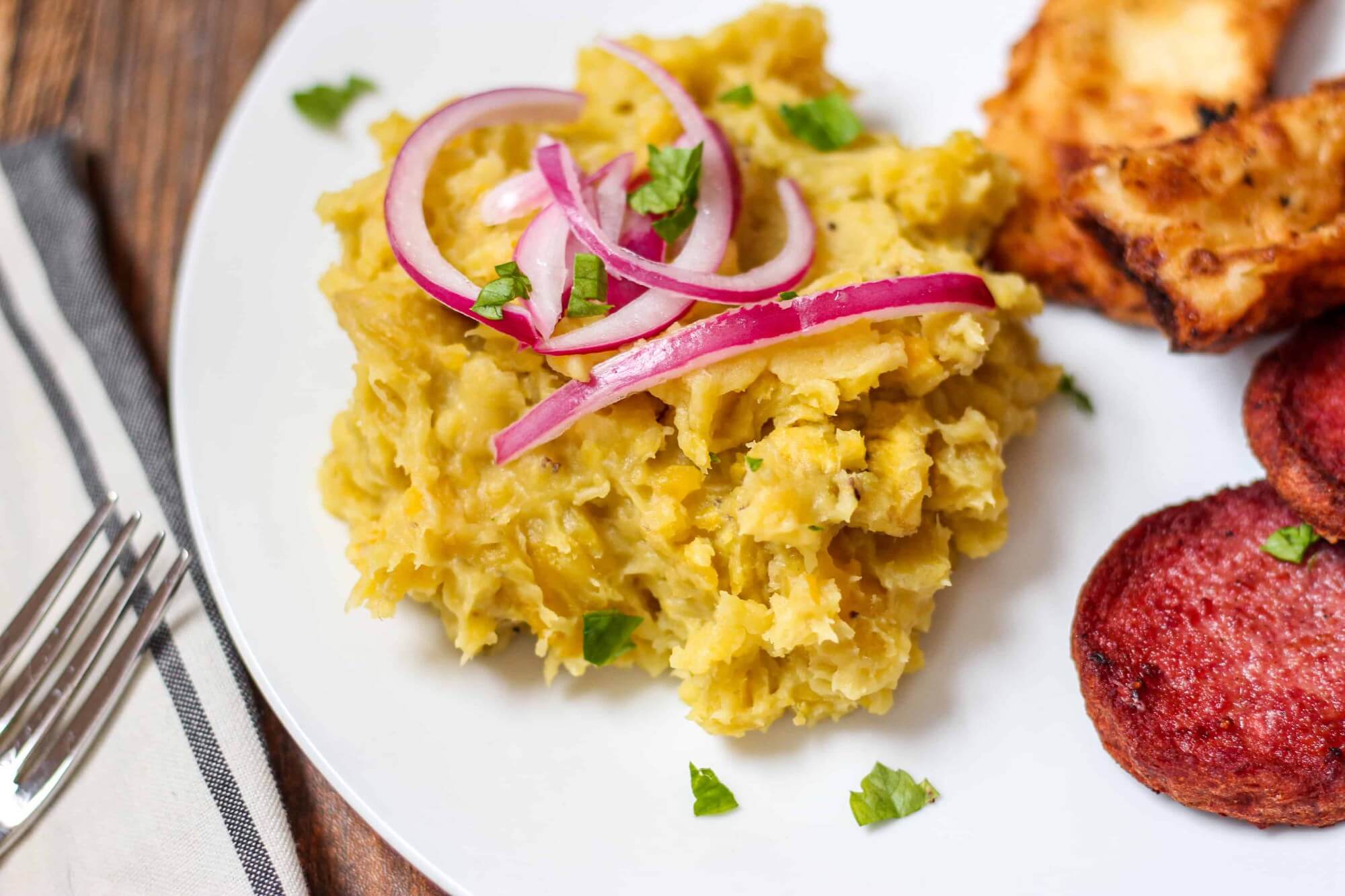
Mangu, a traditional Dominican dish made from mashed plantains, is not only delicious but also packed with nutrition. With its roots deeply ingrained in Dominican culture, mangu has become a staple on many breakfast tables. But what exactly are the nutrition facts of this beloved dish?
In this article, we will explore the 11 key nutrition facts of mangu, shedding light on its health benefits and why it can be a great addition to your diet. From essential vitamins and minerals to dietary fiber and antioxidants, mangu offers a range of nutrients that can support your overall well-being.
So, if you’re curious about the nutritional value of mangu and how it can contribute to a balanced diet, keep reading. Whether you’re already a fan of this classic Dominican dish or simply looking to try something new, understanding its nutrition facts will give you a deeper appreciation for its many benefits.
Key Takeaways:
- Mangu is a nutritious Dominican dish made from plantains, high in fiber, vitamins, and minerals. It’s gluten-free, low in saturated fat, and provides sustainable energy for the day.
- This versatile comfort food can be enjoyed with various toppings, any time of the day. It leaves you feeling satisfied, energized, and brings cherished memories of home and family gatherings.
Mangu is a traditional Dominican dish.
Mangu is a beloved staple in Dominican cuisine, often enjoyed as a breakfast or brunch option.
It is made from plantains.
Plantains, a starchy cousin of bananas, are the main ingredient in mangu. They are boiled, mashed, and seasoned to perfection.
Mangu is high in dietary fiber.
Thanks to the plantains, mangu is packed with dietary fiber, which aids in digestion and helps maintain a healthy weight.
It is a great source of vitamins and minerals.
Mangu contains essential vitamins and minerals such as vitamin C, potassium, and magnesium, which are important for overall health and wellbeing.
Mangu is a gluten-free dish.
For individuals with gluten intolerance or celiac disease, mangu is a fantastic option since it is naturally free from gluten.
It provides a good amount of energy.
With its combination of plantains and healthy fats, mangu serves as an excellent source of sustainable energy to start your day.
Mangu is low in saturated fat.
When prepared without excessive oil or butter, mangu is a low-fat dish that can fit well into a balanced diet.
It is commonly served with various toppings.
Mangu is often served with a side of eggs, salami, cheese, or avocado, adding even more flavor and nutrition to the dish.
Mangu is a versatile dish.
While traditionally served for breakfast, mangu can be enjoyed at any time of the day and customized with different toppings and seasonings.
It is a popular comfort food.
Many Dominicans consider mangu to be a comfort food that brings back cherished memories of home and family gatherings.
Mangu is a filling and satisfying meal.
Thanks to its fiber-rich content and combination of proteins, fats, and carbohydrates, mangu leaves you feeling satisfied and energized.
So, now that you know these 11 Mangu Nutrition Facts, you can appreciate this delicious and nutritious Dominican dish even more. Whether you enjoy it for breakfast, brunch, or any other meal, mangu is a versatile and wholesome option to include in your diet.
Conclusion
In conclusion, mangu is not only a delicious dish but also a nutritious one. Packed with essential vitamins, minerals, and fiber, mangu offers a range of health benefits. The high vitamin C content can boost the immune system and promote healthy skin. The fiber content aids in digestion and promotes feelings of fullness, making it a great option for weight management. Additionally, the potassium in mangu supports heart health and helps maintain proper blood pressure levels. With its versatility and nutritional value, mangu is a fantastic addition to a balanced diet.
FAQs
1. What is mangu?
Mangu is a traditional Dominican dish made from boiled and mashed green plantains, often served with sautéed onions and accompanied by meat or eggs.
2. Is mangu healthy?
Yes, mangu is a healthy option. It is rich in vitamins, minerals, and fiber, which contribute to overall health and wellbeing.
3. How many calories are in a serving of mangu?
The number of calories in a serving of mangu can vary depending on the ingredients used and portion size. On average, a serving of mangu contains around 200-300 calories.
4. Can I enjoy mangu if I’m following a gluten-free diet?
Yes, mangu is naturally gluten-free as it is made from plantains, which do not contain gluten. It can be a great option for individuals with gluten sensitivities or celiac disease.
5. Can I customize my mangu toppings?
Absolutely! Mangu is a versatile dish, and you can customize the toppings according to your preferences. Some popular options include fried salami, cheese, avocado, or eggs.
6. Can I make mangu ahead of time?
Yes, you can make mangu ahead of time. Simply store the mashed plantains in an airtight container in the refrigerator. When ready to serve, reheat and add your desired toppings.
Was this page helpful?
Our commitment to delivering trustworthy and engaging content is at the heart of what we do. Each fact on our site is contributed by real users like you, bringing a wealth of diverse insights and information. To ensure the highest standards of accuracy and reliability, our dedicated editors meticulously review each submission. This process guarantees that the facts we share are not only fascinating but also credible. Trust in our commitment to quality and authenticity as you explore and learn with us.
